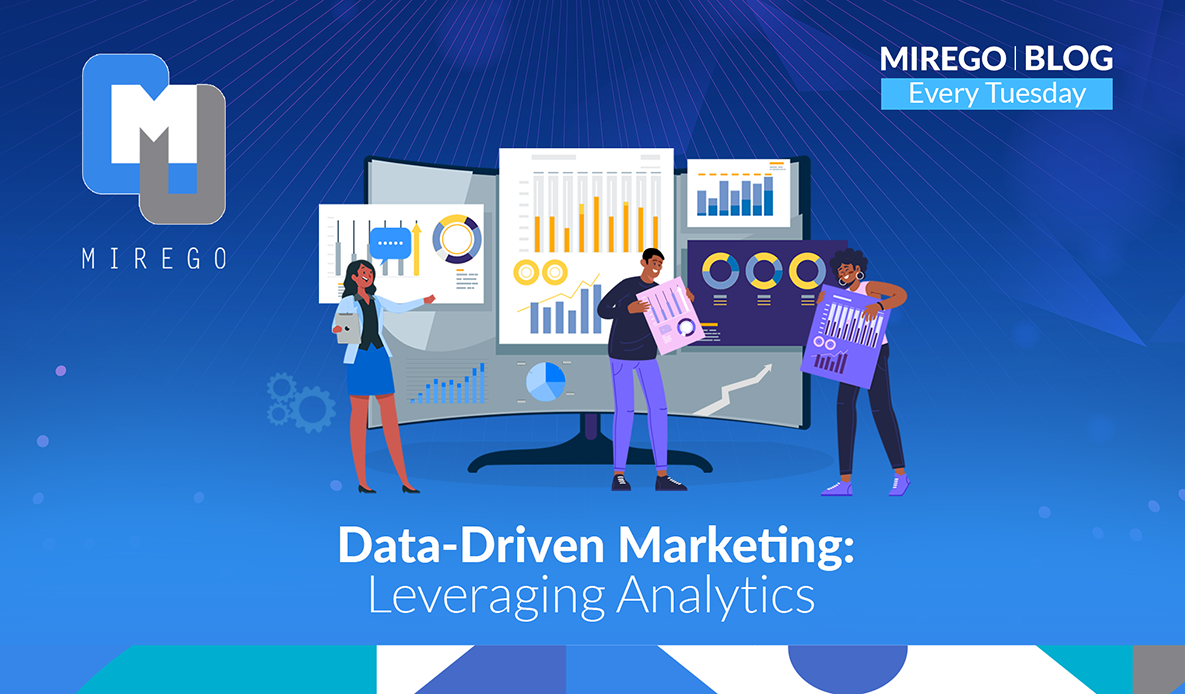


In today's digital age, the success of marketing campaigns largely depends on data-driven insights. Understanding your audience, their behavior, and the impact of your marketing efforts is crucial for making informed decisions and achieving better results. This is where analytics plays a pivotal role. In today’s blog, we'll explore the importance of data-driven marketing and how to effectively leverage analytics for your marketing strategies
The importance of Data in Marketing
1. Audience Segmentation
Audience segmentation is a fundamental concept in data-driven marketing. Analytics tools allow you to divide your audience into distinct groups based on various criteria. These criteria can include demographics (age, gender, location), interests, past behavior (such as previous purchases or website interactions), and more. By understanding these segments, you can tailor your marketing messages to be more relevant and personalized, increasing the likelihood of engagement and conversion.
2. Performance Evaluation
The ability to measure and evaluate the performance of your marketing campaigns is one of the core benefits of data-driven marketing. Analytics tools provide a wealth of metrics that can help you assess how well your strategies are working. These metrics include click-through rates (CTR), conversion rates, bounce rates, and return on investment (ROI).
By tracking these metrics, you can gain insights into which marketing channels and campaigns are delivering the best results. This knowledge allows you to allocate your resources more effectively, focusing on what's working and discontinuing what's not.
3. Predictive Analysis
Beyond assessing past performance, analytics can be used for predictive analysis. This involves using historical data and statistical models to forecast future trends and customer behavior. Predictive analysis can help you anticipate market shifts, emerging customer needs, and potential challenges. For example, an e-commerce company can use predictive analysis to forecast which products are likely to be in high demand during specific seasons, allowing for better inventory management.
Leveraging Analytics for Your Marketing Strategy
1. Choose the Right Analytics Tools
Selecting the right analytics tools is crucial as the choice of tools should align with your business goals and target audience. Google Analytics is a versatile platform that provides a comprehensive view of website traffic and user behavior. Social media platforms also offer in-depth insights for social marketing and for those with more advanced needs, consider customer relationship management (CRM) systems that integrate with marketing analytics tools. These systems can provide a holistic view of customer interactions and help you build more personalized marketing strategies.
2. Set Clear Goals
Before diving into data analysis, it's essential to define clear and specific goals for your marketing campaigns. What do you want to achieve? Are you aiming for increased website traffic, higher conversion rates, or greater brand awareness? Setting well-defined goals will guide your data analysis efforts and help you measure success accurately. Case in point, if your goal is to increase conversion rates, you can use analytics to track how changes in your website's user experience impact the conversion funnel. By examining user behavior data, you can pinpoint where potential drop-offs occur and make informed optimizations.
3. Collect and Analyze Data
Data collection and analysis are at the center of data-driven marketing and by gathering data which can be quantitative such as website traffic and click-through rates or qualitative like customer feedback and surveys from various sources, including your website, social media platforms, and customer surveys, will enable you to gain a comprehensive view of your audience thus allowing you to track individual customer interactions and preferences, which can be invaluable for creating personalized marketing campaigns.
4. Implement Data-Driven Decision Making
With data in hand, the next step is to use the insights from your analysis to make informed decisions. This can involve adjusting your marketing strategies based on what the data reveals. For example, if your data shows that a particular ad campaign is underperforming, you can consider reallocating your budget, or targeting a different audience segment. Data-driven decision-making is an iterative process since you have to continually assess the performance of your marketing campaigns and adapt your strategies accordingly. This agility allows you to stay responsive to changing market conditions and consumer preferences.
5. Test and Iterate
Continuous improvement is the pillar of data-driven marketing. Implementing A/B testing and experimentation to refine your strategies and test different approaches by creating two versions of a marketing element, such as an email subject line or a webpage design, and then comparing their performance with real-world data will allow you in the end to determine which subject line generates a higher open rate thus giving you over a period of time the ability to fine-tune your campaigns for maximum effectiveness based on the insights derived from such tests.
Conclusion
Data-driven marketing, powered by analytics, has become the standard for successful marketing campaigns. By harnessing the power of data, you can better understand your audience, optimize your strategies, and drive improved results. Make analytics an integral part of your marketing efforts, and you'll be well-positioned to adapt to the ever-changing landscape of the digital marketing world.

As the marketplace is frequently evolving, it's critical to track the results of your mark ...

Introduction:
In today's competitive marketplace, building a prominent brand requires more than just a great product or service. It demands a strategic approach that encompasses a well ...

Introduction
In today's fiercely competitive marketplace, brand maintenance is a critical aspect of achieving enduring success. A brand that exudes strength not only sets your business ...